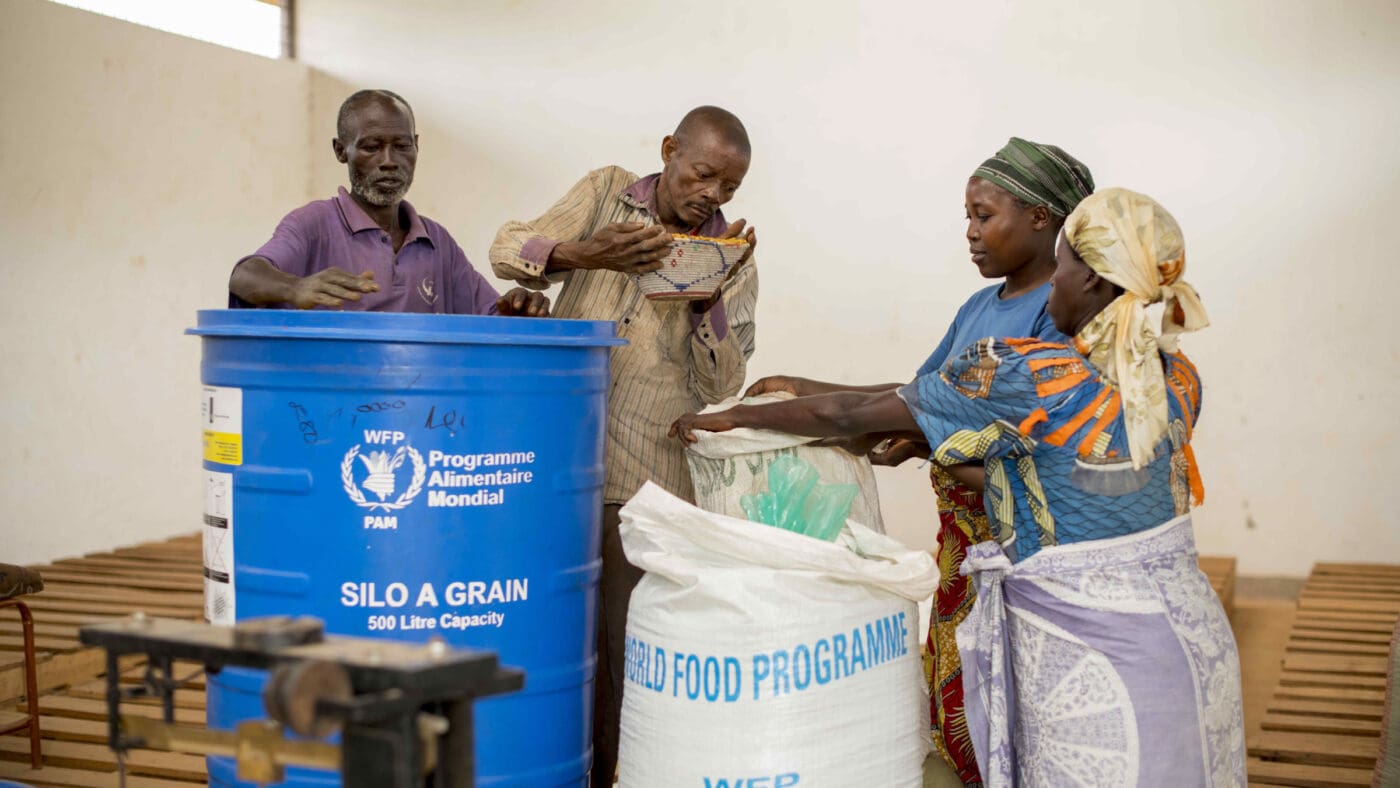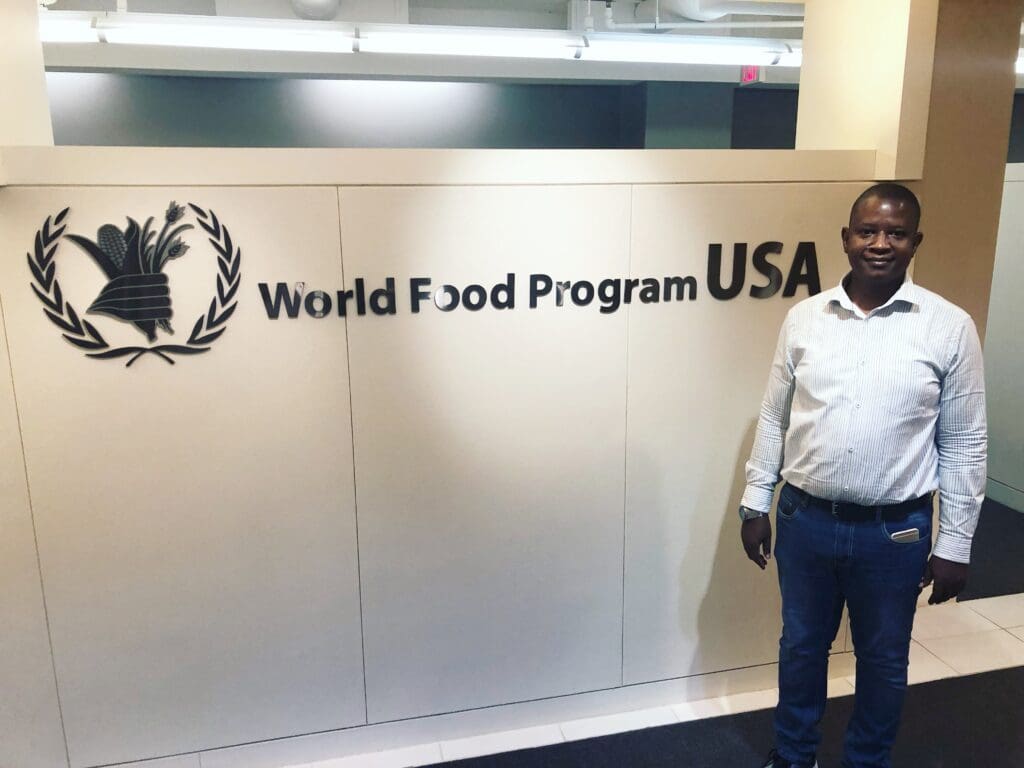
Policy Roundtable
Food Loss
In Sub-Saharan Africa, millions of subsistence farmers depend on small plots of land to grow the food they need to survive. Unfortunately, up to 40 percent of all the crops they harvest are ruined during storage.

On April 17, 2019, WFP USA convened a group of stakeholders in policy, the private sector and humanitarianism to meet with Johnson Kagoye, WFP’s government partnerships officer in Uganda, for a roundtable discussion on Capitol Hill about the cause, effects and solutions to the problem.
For the past five years, Johnson has overseen one of WFP’s most successful anti-food-loss projects: The Post-Harvest Loss Reduction Initiative. What started as plastic containers from local soda processing plants were turned into air-tight storage containers that keep out rodents, bugs and mold. The containers have revolutionized food storage, keeping crops fresh for months on end and cutting post-harvest losses to less than 2 percent. Johnson detailed how private sector partners helped bring the solutions to scale:
“We now have three different types of storage technologies to offer farmers: airtight bags, plastic silos and metal tanks…Now, five years on, we’ve reached 325,000 participants in Uganda alone.”
Johnson detailed the wide-ranging benefits that improved storage has brought to individuals and their communities including participation by women, increased food security and farmers able to sell their surplus crops in local markets.
What’s next?
“Our goal is to reach 100 million households,” said Johnson. “In the meantime, we’re doing what we can to work with the private sector to continue to get funding and infrastructure support to move this program forward. But I’m excited that we’ve already made a difference in the lives of thousands of families – and about the potential of this project to further create a more sustainable and hunger-free future.”